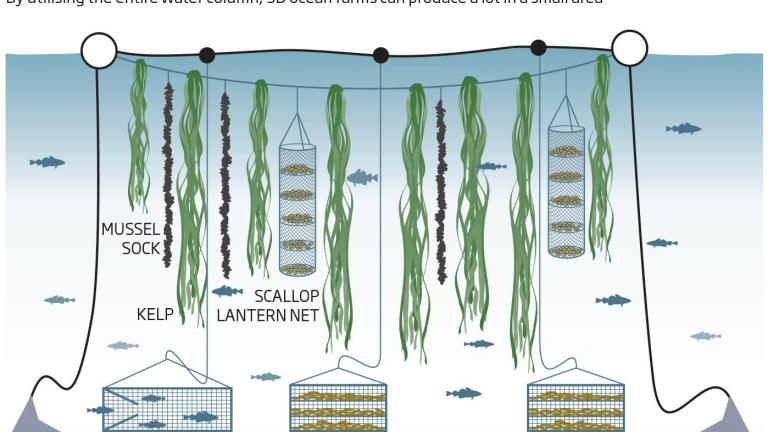
Hi all,
This is my first post on ClimateX. Woo hoo!
Making a plug for the oceans, generally-speaking, as a critical component of climate change adaptation. Too often, public debates frame strategies to combate climate change as a matter of "renewable energy," "reducing consumption," "building sea walls," - or in other words, - in land-based, energy-focused terms. While that's all well and good, the oceans are hugely understated and poorly understood as a tool for combating climate change. For example, while ocean plants equal .05% of the plant biomass on land, they absorbs as much carbon as land-based plants every day! Recognizing this potential, there is a growing community of practitioners focused on harnessing the power of sustainable, ocean-based aquaculture for everything from sucking C02 out of the air, restoring the nitrogen balance, and reversing ocean acidification to reinventing the food system and conventional community economic development models. I'm starting this thread for anyone interested in the intersection of these topics as they relate to the oceans and climate change adaptation.
A few articles and organizations that have captured my attention lately:
1. Greenwave
The non-profit featured below - Greenwave - is based out of Connecticut. Their open-source model for ocean-based "permaculture," (for lack of a better term) is compelling, among other reasons, because of their focus on linking land-/ocean-based food systems planning with ecosystem restoration.
An Excerpt:
"Ocean farming isn’t just about food. It’s about transforming an entire workforce, transforming fishers into restorative ocean farmers. My job has never been to save the seas; it’s to figure out how the seas can save us. I say that because millions of years ago Mother Nature created two technologies designed to mitigate our harm: shellfish and seaweeds. Oysters filter up to 50 gallons of water a day, pulling nitrogen — the cause of our oceans’ spreading dead zones — from the water column. Our farmed kelp, called the Sequoia of the sea, soaks up five times more carbon than land based plants. Seaweeds could be a powerful source of zero-input biofuel; feasibility studies suggest we might produce 2,000 gallons of ethanol per acre — that’s a 30 times higher yield than soybeans and five times more than corn. According to the Department of Energy, if you were to take a network of our farms equaling half the size of the state of Maine, you could replace all the oil in the United States.
Our farms function as storm-surge protectors, breaking up wave action to reduce the impact of hurricanes and rising tides. And they serve as artificial reefs, attracting more than 150 species of aquatic life. Sea horses, striped bass and grey seals come to eat, hide, and thrive on our farms. My farm used to be a barren patch of ocean, now it’s a flourishing ecosystem. As fishermen, we’re no longer pillagers, hunting the last fish. We are a new generation of climate farmers who have joined the fight to restore our planet. We’re trying to break down the seawalls that separate our land-based and ocean-based food systems. Even the best land-based farms pollute, sending nitrogen into our waterways, so we use our kelp to capture that nitrogen, turn it into liquid fertilizers, and send it back to organic farmers to grow their wonderful vegetables. When the nitrogen then runs back into Long Island Sound, we capture it again."
https://medium.com/invironment/an-army-of-ocean-farmers-on-the-frontlin…
2. "How Growing Sea Plants Can Help Slow Ocean Acidificaton"
http://e360.yale.edu/features/kelp_seagrass_slow_ocean_acidification_ne…
3. "Restaurants Are Returning Their Empty Oyster Shells To The Ocean To Rebuild Decimated Reefs"
https://www.fastcompany.com/40436384/restaurants-are-returning-their-em…
*Also, we need an "Oceans" tag for Primary Topics!






